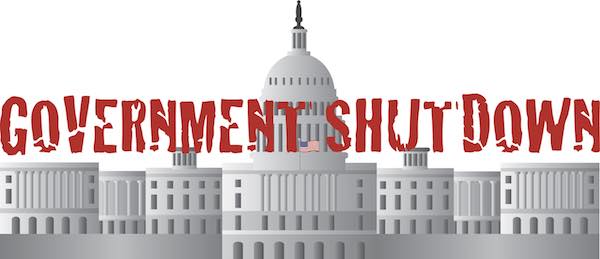With the threat of another partial government shutdown again looming in Washington, legislation has been introduced to do away with them.
The End Shutdowns Act has been introduced in both the House and Senate. The Senate version (S. 2729) is sponsored by Senator Tim Kaine (D-VA) and the House version (H.R. 5353) is sponsored by Congressman Don Beyer (D-VA).
The legislation would initiate an automatic continuing resolution on October 1 at the same levels as the preceding fiscal year if no appropriations bill is passed by that date and also stop the Senate from moving forward with any other legislation, outside of an emergency scenario, until Congress reached an agreement on a long-term spending deal.
Kaine said in a statement, “Government shutdowns have disastrous consequences for federal employees and government contractors and slow down critical government services that millions of Americans rely on like getting replacement Social Security cards and food inspections. But politicians continue to use or threaten to use government shutdowns as a negotiating tactic. This is unacceptable, which is why I’m reintroducing my bill to prevent government shutdowns.”
Similar bills have been introduced in the past. For instance, the Stop STUPIDITY (Shutdowns Transferring Unnecessary Pain and Inflicting Damage In The Coming Years) Act (S. 198) proposed keeping the government open in the case of a lapse in funding by automatically renewing government funding at the same levels as the previous fiscal year, with adjustments for inflation.
The End Government Shutdowns Act (S. 104) introduced in 2019 proposed creating an automatic continuing resolution for any regular appropriations bill or existing continuing resolution not completed by the October 1 deadline. After the first 120 days, continuing resolution funding would have been reduced by one percent and reduced by one percent again every 90 days thereafter until Congress completed the annual appropriations process.
Will Federal Employees Get Paid in the Event of a Government Shutdown?
Federal employees may be furloughed during a shutdown, but, they are guaranteed to receive back pay for the time that they are furloughed.
The Government Employee Fair Treatment Act of 2019 (S. 24) stipulates that federal employees who are furloughed or required to work during a lapse in appropriations resulting from a government shutdown be compensated for the period of the lapse. Federal employees must be compensated on the earliest date possible after the shutdown ends.
The law also states that excepted federal employees who are required to work during a shutdown shall be entitled to use leave. They will be paid for said leave at the earliest date possible after the lapse in appropriations ends, regardless of scheduled pay dates.
Where Did the Concept of a Government “Shutdown” Originate?
A federal government “shutdown” did not exist before 1980. Now, it is an annual political event routinely used to scare the other party and convince the public that one party is to blame.
But, before 1980, if money had not been appropriated, federal employees still went to work, and still got paid (usually a little late until funds were approved), and the situation was resolved without all the political drama we have invented since 1980.
The man who invented the shutdown? Benjamin Civiletti. Civiletti was the attorney general for President Jimmy Carter.
The legal basis for the newly discovered legal requirement was “discovered” in an 1870 law —the Antideficiency Act of 1870.
Civiletti made his reputation by concluding the federal government was operating outside the law when he revealed the true meaning of the law. This problem had escaped the attention of America’s legal experts for more than a century.
As a result, we now go through the same threats and deal with the impacts created by the concept of a shutdown most years.



